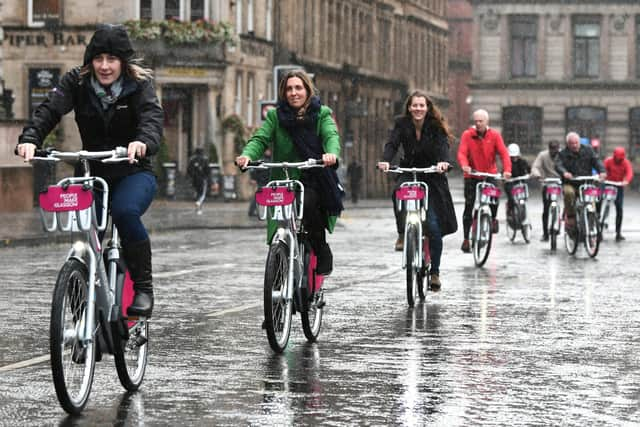Gear up for the electric bike revolution - Dr Lesley Ingram-Sills & Prof Geraint Florida James
As it stands, transport is a heavy contributor to the reduction in our air quality, accounting for around a quarter of emissions. Prolonged exposure to polluted air is estimated to cost the UK economy £20billion and contribute to tens of thousands of deaths every year. E-bikes are now offering a plausible alternative.
In 2020 electric bikes outsold electric cars in the UK (160,000 versus 108,000), working out at a bike being bought every 3 minutes or so. Though they can sound daunting, they are legal to ride in the UK by anyone over the age of 14, and the speed is limited to 15.5mph. Any faster and the motor cuts out – meaning it is down to pedal power alone.
Advertisement
Hide AdAdvertisement
Hide AdOur recent study on electric mountain bike users found riders were typically a bit older – around 35 to 64 – and that more people with a disability or long-term health condition ride them, compared to push bikes.


Cost is the greatest barrier to electric bike ownership, with entry level models retailing for around £2500. But that money appears to be going a long way, in every sense. Nearly half of respondents preferred to use their electric mountain bike over others they owned, suggesting it’ll cover a wider range of journeys – whether it is for commuting, shopping, or just having fun. And, crucially, this cuts down the number of dormant bikes gathering dust.
The data also suggested that riders cycled further and faster, making for a promising set of findings. They suggest e-bikes could reduce some of the fitness barriers, and challenges presented by our hilly and windy isles.
It might not be so tough on the legs, but it still falls within moderate intensity of exercise – therefore offering plenty of individual health benefits. Furthermore, it appears electric bikes may also keep older individuals engaged and active for a greater period of life, helping to promote healthy ageing.
And the benefits could extend further than we already know. Currently at Edinburgh Napier University we have several projects exploring pollution exposure at an individual level. This is influenced by the concentration of pollutants in the air, how hard a person is breathing and the length of time they spend in that environment.
Our research team is investigating whether electric bikes can therefore cut down this kind of harmful exposure, given e-bike cyclists don’t need to make so much physical effort and can travel through polluted areas more quickly.
In what will be a huge year for cycling across Scotland – the biggest ever UCI World Championships arrive here in a few short months – don’t be surprised to see electric bikes help more of us toward sustainable and healthier lifestyle, empowering the environmentally-conscious choice.
Dr Lesley Ingram-Sills & Professor Geraint Florida James, Edinburgh Napier University’s School of Applied Sciences
Comments
Want to join the conversation? Please or to comment on this article.